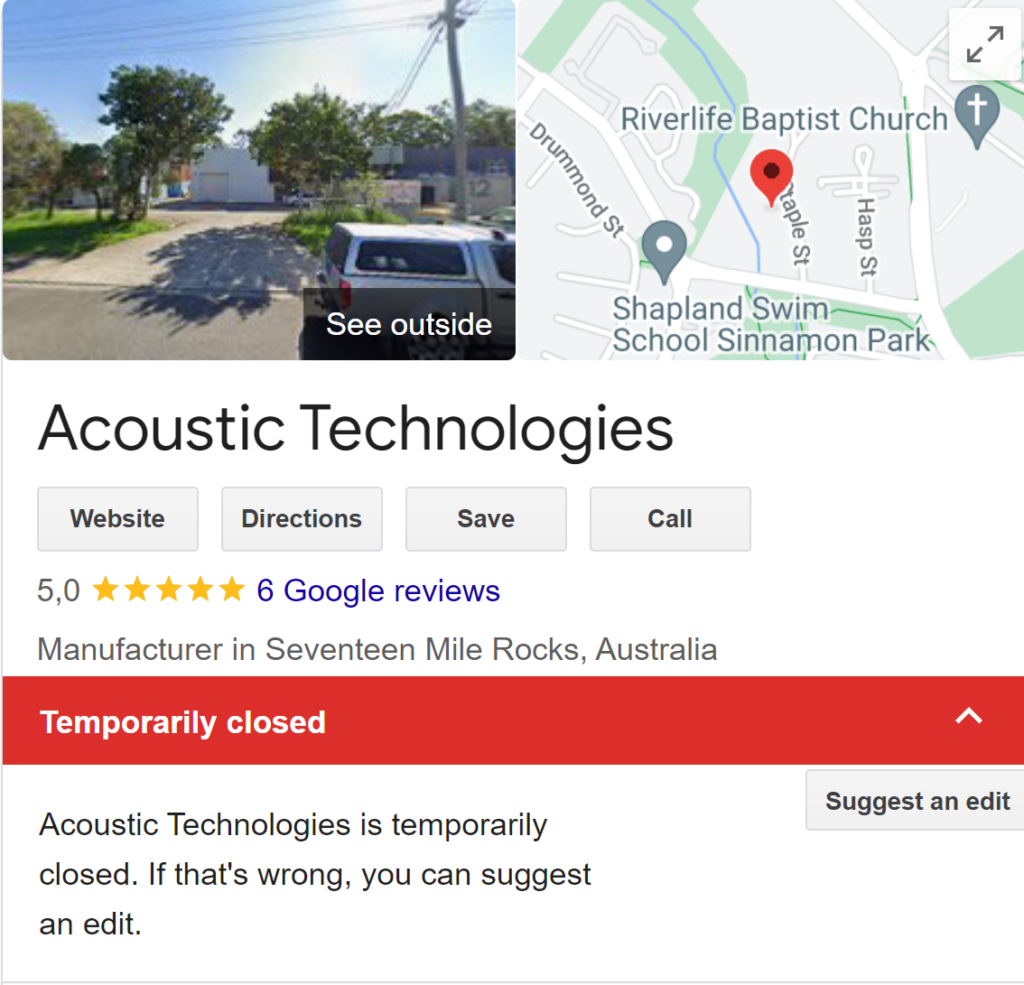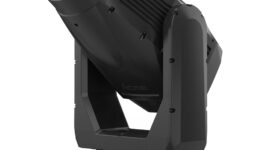News
2 Jul 2024
Inside the AT Professional standoff: ‘Many’ deposits frozen

Subscribe to CX E-News
Established in 1972, Harry Lloyd-Williams’ PA manufacturing firm AT Professional has spectacularly been locked out of its factory, leaving dozens of customers out of pocket for deposits, and repairs seized by a landlord who put everything to auction last month.
A Facebook group revealed many cases of non-delivery, duplicity and broken promises which escalated over time, transforming a credible local success story into a house of cards. The company had some impressive designs but when engineer Richard Feint retired, the design pipeline stopped.
Lloyd-Williams established Matra Audio in 1972 and it became a Queensland institution. Crossing the border last century one immediately saw the indigenous brand installed in every second pub. Colloquial loyalty is strong in the north, and everyone knew ‘Harry Matra’. Eventually the brand became Acoustic Technologies, registered as Acoustic Technologies Electronics Pty Ltd and trading under the AT Professional brand.
It was never run in an orderly fashion. Lloyd-Williams loved to wheel and deal and was very good at just that. While Feint was around, the production line was reasonably efficient, albeit with patchy quality. In later years, post-Feint, component substitution started to mire the brand with any shortage simply bypassed, leading to performance variations between apparently identical speaker boxes.
In an email trail seen by CX from 2016, the production manager admitted to Lloyd-Williams they did not test polarity, after shipping a bass cabinet out of phase. It was a ‘groundhog day’ occurrence he said, and the manager pleaded for some software to alleviate the problem. Reverse polarity is when the positive and the negative speaker terminals are reversed due to inattention during assembly, causing the product to cancel out any nearby in the low end. It can be tested easily, using a polarity tester. But it wasn’t. The result is one part of a system works against the rest.
If there was an accounting system it was well hidden – customers had to audit their payments and have discussions about what was paid and when. It appears, whilst the firm is not yet in administration, that some tax payments were not made or may have been under reported.
A crossroads arrived when Lloyd-Williams sold the factory on Staple Street, Seventeen Mile Rocks, in Brisbane’s south-west, to a landlord who was prepared to lease it back. A series of rent arrears stockpiled through Covid and at some stage the landlord secured a caveat over Lloyd-Williams spacious semi-rural property at Mackenzie, a south-eastern suburb.
The pandemic didn’t help, but by then a pattern had emerged where customers would pre-pay sums of up to $25,000 and production that should have commenced didn’t. Audio company operators, all of whom are small businesses, often family owned, had earlier formed an online Facebook group to initially talk about the performance of their systems. The CLA composite line array was in use with dozens of firms who generally were very happy with it.
Speaker system sales usually generate more sales as people scale up. One operator told CX he ordered a complete second system, paid $22,000 in 2016, and never saw it. Lloyd-Williams told CX that the 2016 transaction was shipped. That is one of many disputes.
Amazingly some operators claim Lloyd-Williams somehow sold the same system twice. Amongst all the chaos, the landlord took legal action and on March 16, seized the premises after serving notice by mail and email previously. At that time there was no finished stock, just a lot of work in progress. Also present were a lot of repairs, owned by customers.
AT had faced a lot of supply chain problems, as have most other manufacturers. The Baltic ply supply was choked off when Putin invaded Ukraine. The specific Powersoft amplifiers used by AT were chronically delayed. In an email seen by CX, Massimo Minardi from Powersoft S. p. A. wrote “We are not facilitating anybody to the detriment of you! We can’t any longer manage the orders like you would love.”
AT were cash-strapped so they somehow found a commercial financier who financed component imports, then held the stock until AT paid for each released batch. They are currently sitting on stock of P Audio loudspeakers, and until AT goes into administration, will not sell to anyone else.
Then came the unseasonal rain bombs flooding the factory which Lloyd-Williams says ruined stock, ply and equipment. The landlord refused or didn’t fix the problem, and power was disrupted.
Customers became alarmed by adverts for the auction in June of the entire factory contents – including their repairs. One wrote to Lloyd-Williams: “I need to know what the chances are of getting the gear I ordered and paid up front for”, to which he replied “You know I won’t depart this planet until I have sorted all my commitments”.
When challenged, lawyers for the landlord advised anyone with product on the Personal Property Securities Register (PPSR) could reclaim their stock. In a letter to the landlord, the landlord’s lawyer confirmed only two finance firms had registered interest over the assets of the company.
PPSR is best known as a security check when buying a used car, but in fact it is a monstrously huge federal government database of anything and everything owned by anyone, designed to ensure and protect the owner’s rights. It is particularly useful where, for example, a nightclub goes broke and a hired system is then lawfully retrieved. Proof of ownership, under PPSR law, doesn’t exist unless a product or device is listed on the register. Owners approached the auctioneer who said just that.
Few, if any, small operators know of, or list their inventory on the register, so as auction day approached some got busy. One operator, who did not wish to be identified in this story, went to local police who advised that technically selling his equipment in the action was not lawful. Challenged politely as to what the police would do if he were to seize his equipment just prior to auction, Police said – informally – they would not take action. On auction day he arrived with others and seized two lots. He had police on the way.
The auctioneer then cancelled the auction, facing a roomful of aggrieved people.

Much commentary on the AT Pro FB page has seen people wavering between anger and sadness. One operator told me his marriage had been affected. All were embarrassed that they’d been caught out like this. Another pondered a wish whether AT would rise like a phoenix and re-establish works in Lloyd-Williams large rural shed, using components stored with the financier. “Can a 74 year old pull this off?” he asked. “Maybe I’m delusional”.
The saga has depreciated the value of AT product held and used by many operators, most from Queensland. “I don’t understand the hypnotic, almost cult-like loyalty toward the brand, especially in the QLD market”, an observer posted.
CX approached Lloyd-Williams to verify or challenge facts within this story, and to ask why the company was not yet in administration. He replied: “Your publishing of false statements about me and my business is not warranted. Your accusations are unfounded and outrageous. I will forward correspondence to our solicitors”.
Subscribe
Published monthly since 1991, our famous AV industry magazine is free for download or pay for print. Subscribers also receive CX News, our free weekly email with the latest industry news and jobs.






